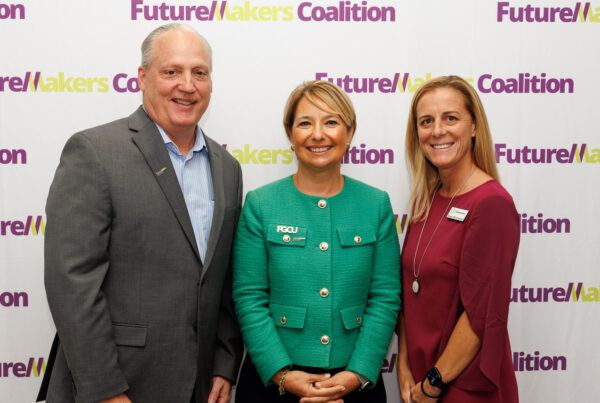Which Southwest Florida occupation has the largest gap between the number of workers demanded by employers and the available supply in the labor market?
This is the question studied by Workforce Now’s “Report: Southwest Florida’s Workforce Strong, in Flux.” Workforce Now is a research initiative that studies the regional workforce and is comprised of researchers from Florida Gulf Coast University, Hodges University, and Florida SouthWestern State College. Workforce Now is a partner to the FutureMakers Coalition, a cross-sector coalition from Hendry, Glades, Collier, Lee and Charlotte counties with the shared goal of closing the higher education gap and, more importantly, retaining those high-skilled Southwest Floridians in jobs within the region.
One of the outcomes revealed registered nurses are in great demand today yet did not even make the list of top ten occupational gaps in a 2014 study. This year, the study reveals the demand for nurses exceeded the available supply by 534 workers.
Other Southwest Florida occupations showing significant gaps included retail and construction supervisors, maintenance and repair workers, speech language pathologists, and physical therapists.
“The study identifies occupations where the workforce needs are greatest in our area,” said Sarah Owen, president and CEO of the Southwest Florida Community Foundation, which serves as an anchor organization for the FutureMakers Coalition. “The needs are short-term as opposed to long-term. But they’re the occupations employers are having the hardest time filling. This creates a domino effect on the quality of life in our region, which is why it is important to have current and relevant information to drive positive change together as a region.”
Additional findings of the study include:
- Southwest Florida’s employment now exceeds 543,000 workers, or about 6 percent of the state of Florida’s workforce. The average Southwest Florida wage is $38,852, compared to $44,810 for Florida and $51,296 for the nation.
- Southwest Florida’s largest industries by employment are retail trade (19 percent), accommodation and food services (15.5 percent), health care and social assistance (14.1 percent), and construction (9.9 percent). In contrast, the largest industries by wage income included health care and social assistance (18.1 percent), retail trade (13.8 percent), construction (10.3 percent), accommodation and food services (8.4 percent), and professional and technical services (8.3 percent).
- The fastest growing industries in Southwest Florida between 2010 and 2014 (as measured by employment) were accommodation and food services (10,656), retail trade (8,731), construction (7,574), health care and social assistance (4,825), and administrative and waste services (4,567). However, slowest growth industries during that time period were utilities (24), information (113), mining, quarrying, and natural gas extraction (122), and finance and insurance (299).
The study projects that the fastest growth industries six years from now will be construction (adding 1,675 jobs per year), health care and social assistance (1,460 jobs per year), retail trade (991 jobs per year), accommodations and food services (872 jobs per year), and self-employed and unpaid family workers (549 jobs per year).
“The study suggests a dynamic labor market with shortages and surpluses in several of the industries in our region,” Owen said. “In terms of the long-term needs of our region, it shows in a pretty dramatic way areas where resources should be administered to address workforce needs.”
The full study can be downloaded from the Regional Economic Research Institute’s web site at http://goo.gl/ZTJgFn
The FutureMakers Coalition is one of Lumina Foundation’s 75 national Community Partners in Attainment. Residents are encouraged to join and support this community-changing initiative. For more information, visit www.FutureMakersCoalition.com, call 239-274-5900 or email Tessa LeSage at TLeSage@floridacommunity.com
Contact: Dr. Christopher Westley, Director of the Regional Economic Research Institute


























